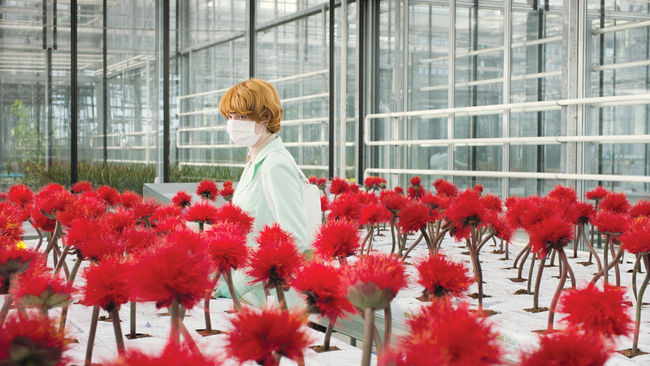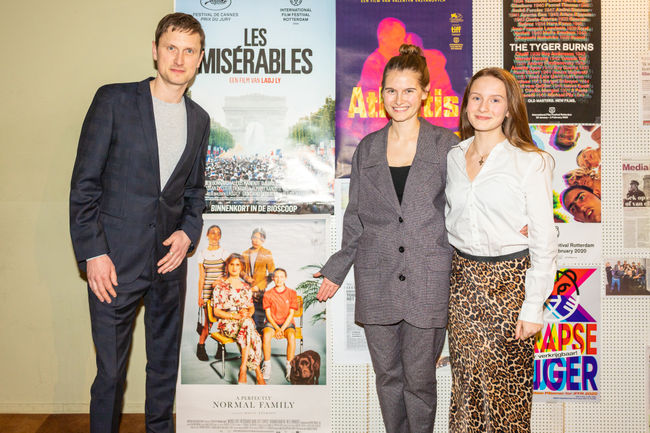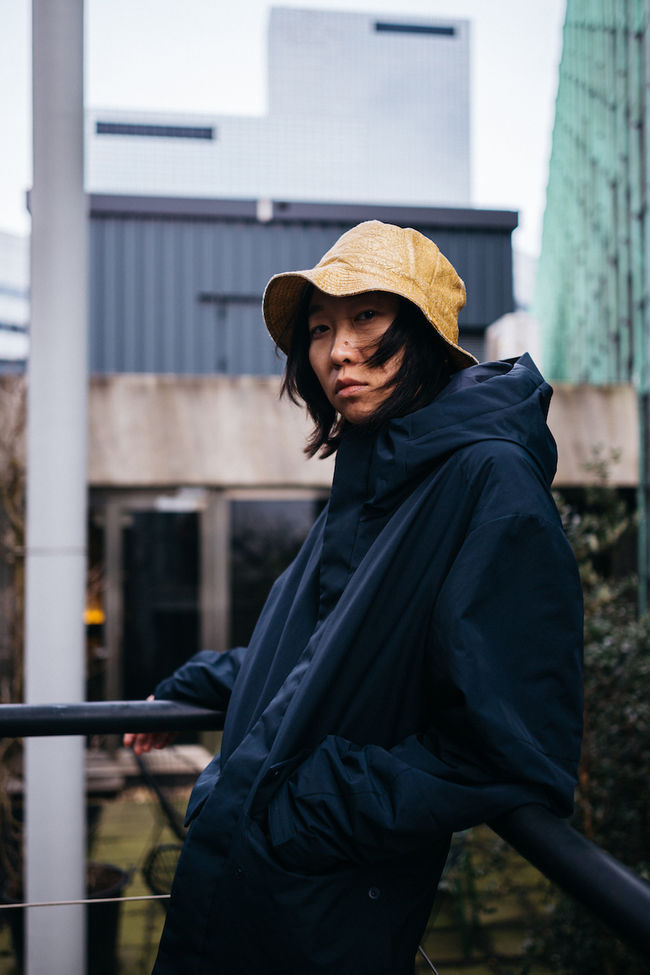Mees Peijnenburg on Paradise Drifters
25 January 2020
Mees Peijnenburg on Paradise Drifters
Mees Peijnenburg is seen as one of the Netherlands’ most promising film talents. With Paradise Drifters his feature debut about three homeless teenagers struggling against the odds for a better life, he more than makes good on this promise.
Written by Anton Damen
Peijnenburg attracted attention with A Hole In My Heart, the Dutch Oscar entry in the short fiction category in 2015, and again by winning a Golden Calf for his TV film Geen koningen in ons bloed (We will never be royals). His feature debut Paradise Drifters is a spiritual follow-up to his two breakthrough films.
Paradise Drifters has two premieres lined up: the Dutch premiere at IFFR, and then on to Berlin for the Berlinale. I’m sure this is not your first time in Rotterdam?
“I never miss IFFR; I think I’ve been coming here since I was seventeen. As a visitor, I always try to attend an event like one of the VPRO days. While I was still studying at the film academy, our whole class came to the festival. And my girlfriend’s from Rotterdam. The great thing about a festival like IFFR is its international allure and the diversity of the audience. You really feel like a global citizen. Here, I see great, crazy or exceptional Asian and Eastern European cinema that you just don’t find at other festivals. A brilliant representation of a particular cinematic sensitivity.”
“So it’s amazing that my film has its premiere here, on Saturday evening in Pathé 1 – the biggest screen at the festival! The screening is completely sold out, I’m being bombarded with messages from people who couldn’t get a ticket, hoping I can help them out. I really can’t wait. And, of course, I hope the film will go on to conquer the world.”
Talking about IFFR’s international nature: Paradise Drifters never feels like a typical Dutch film.
“I am from the Netherlands and I live in the Netherlands, but of course my world is much bigger. I’ve been inspired by lots of foreign filmmakers. Mexicans like Iñárritu who made Biutiful and Cuarón with Y tu mamá también; but also Gus van Sant’s Elephant. And not only film, also video clips and other art forms.”
“I aim to make arthouse accessible – also for people my own age. There’s nothing wrong with being accessible; I really don’t like walking around in a museum and feeling stupid. That way, you’re excluding part of the audience. But at the same time, as a filmmaker, of course you can challenge your viewers. This is exactly the balance I’m looking for.”
“For some people, there’s a stigma attached to arthouse: that it’s difficult, heavy and depressing. With Paradise Drifters I aim to build a bridge. So in spite of the fact that the lives of my main characters contain all the ingredients for a shitty life, I choose to focus on hope. These characters are fighting for a better life. This is the primal strength of human beings – where the sparkle and the beauty come from. I’ve never lived on the streets, but everyone should be able to recognise the search for love and connection with others.”
Another thing that gives the film a not-so-Dutch feel is the setting. Paradise Drifters is set mainly in Marseilles and Barcelona.
“I’d guess about seventy percent of the story takes place outside of the Netherlands. Some of those interiors we built here in the Netherlands – but we also filmed in other countries, in locations on the fringes of society. In places you wouldn’t go as a regular tourist, places where the rules are different. In Marseilles, we shot at a location where the drug cartels control the area. They made it very clear we could film this building from that angle until 11 o’clock – but after that, no way. 'Otherwise the Kalashnikov bullets will start flying'. There were also strict rules in the Roma neighbourhood in Barcelona. So there was really something at stake – but that was a real confirmation of our reasons for making this film.”
It’s a fresh film with a unique vision, one that resists classification. Almost like a road movie without a road.
“Exactly. If you watch the film again, you’ll see that we never film in a moving car. This is one way of highlighting the fragmentary nature of the main characters’ lives. Their lives are just as fragmented as the film.”



